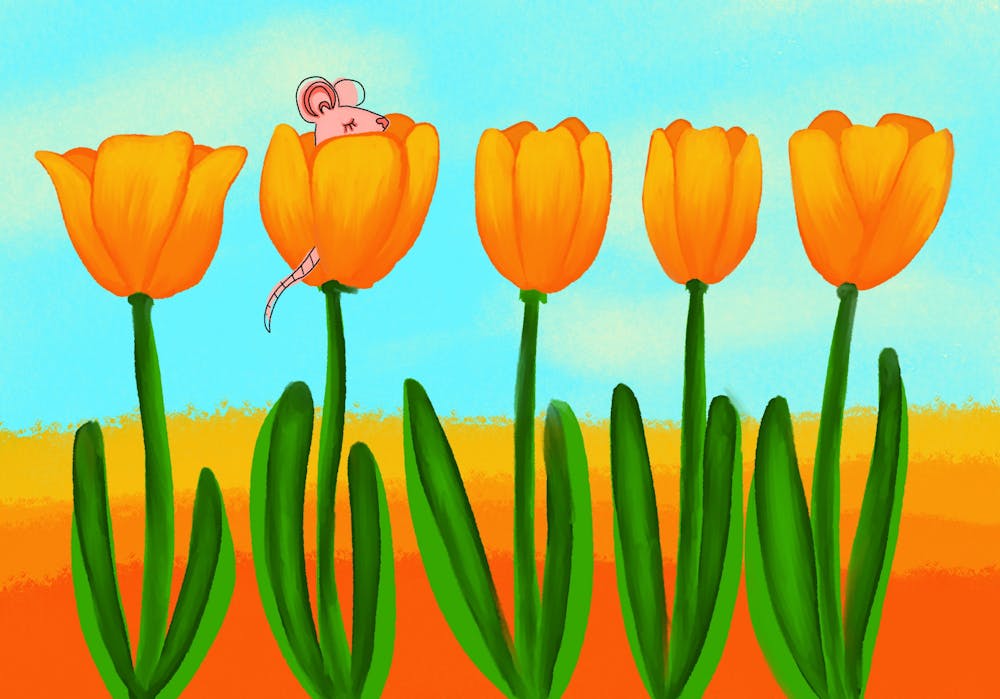tw: homophobic slur
There is no greater joy than to find a new place. I collect them: places to squirrel away in, places to sit and rest for a while, places to dilly-dally. There are places to watch and places to think and, most of all, places to hide.
My hiding places are often fleeting: I lose them as quickly as I find them. I lose them to circumstance, to accident, to memory. One morning, they pulled up the fire escape ladder, and now it’s just a bit too high to haul myself to the top. Last year, I forgot which stairway brought me to the little room on the fourth floor of the public library that smelled like old books and cigarettes. Two summers ago, I realized I was too heavy to swing myself onto even the lowest branch of the sequoia tree in my childhood backyard.
To lose these beloved places causes me near-physical pain. I miss them like I miss the jasmine perfume my mother wears now that I’m living far from her, or the scratchy fabric of my grandmother's sweater against my cheek.
This is one particular way to lose a place:
I was sixteen years old and sitting on my very favorite bench when a man drove by and yelled a horrible thing.
I will start with the bench. It is a sturdy bench, made of fourteen wooden planks linked in a satisfying curved formation, the sort of curve that cradles the shape of your back. The armrests are metal and always cool, which is particularly pleasant in the summertime. Over the bench looms an old oak tree. The grooves in this tree run deep, like the veins in the hands of my grandfather, who believed a man should always chop his wood by hand. The sharp spiced scent of recently fallen acorns floats down to rest around the bench. The right armrest is perpetually sticky—maybe from tree sap or a long-ago spilled chocolate ice cream cone. From this bench, I can hear the screeching cry of a particularly obnoxious crow. He screams like someone has taken his lunch and smacked him on the head with a newspaper and he needs nothing more than for the whole world to hear his indignation. I have named him Stuart. I am very fond of him.
I like to sit on this bench in the late afternoon, because that’s when the oak tree shades the left side of the bench—the side which is just as sticky as all the other public benches in the world. By then, Stuart has exhausted his vocal chords for the day, and the wind has settled in to rest for a while. It is late afternoon and I am trying to read, only to find myself distracted by the pleasant sun, and by the thought that it is a terrible crime that anyone should have to concentrate when the sun is so bright and wide-armed.
Then a man drove by in a gray sedan and yelled at me to give him a smile, you fucking dyke.
Then he drove away.
Nothing moved except my breathing. I stared at the place where the car had been. The bench beneath me was hard, somehow tougher than it had been before. Or maybe it was just the concrete air slowly filling my lungs.
I long for these spaces where I might be unwatched, and the longing becomes a question. It asks why I would want a place that can’t be seen. It asks who is always watching. Space becomes a labor; I have to constantly move in it, move through it, knowing it cannot be mine. I try to claim it, sit for a moment, and find a brief reprieve. But it only ever lasts a moment.
To be a female, and particularly a female finder of places, is to always be watched. I am a spectacle, with men as my unbidden audience. Often, even when I am putting on my socks in the morning and completely alone, I tuck my hair behind my ears. I am always conscious of the man, the watcher, who is ever-present. He is peering through the keyhole in my own head.
These are Mary Oliver’s words, give or take a few: Whatever a space is to the heart and body of a woman, surely it is as much or more to the spirit. I long for spaces that speak to my spirit, spaces that hide me. Sometimes these are warm, quiet spaces best accompanied by a cup of Earl Grey tea, unsweetened and lukewarm from sitting on a desk too long. At other times they are cool, dark and mossy, surrounded by toadstools and small wild things. Or they are bright and bursting with lots of windows I can see out of, but nobody can see into. I would like there to exist places that are small and snug and well-tucked in, secret and quiet and almost intangible; places that are unobservable, yet from which I can observe perfectly well. I want to be held by a space. I want the very walls to wrap around me and press gently inward. Nobody can see me in this place. It closes its eyes and gives me a gentle kiss on the forehead.
These are the spaces I imagine. Surely such places reflect the state of my soul. There are hidden places that reach out towards me with tantalizing fingertips, and there are places that lurk in solemn silence, waiting for my hand; there are places that nudge, places that prod; there are places that hold me by my elbows and rock me to sleep, humming gently.
As my imagined places are mirrors of my soul, so my real places must contain a bit of my soul made tangible.
I am a private person. Even the thought of sharing my places, I’ll admit, feels just a bit more unpleasant than slowly peeling off one of my fingernails. For you, though, I will try.
Here is one of my places:
There is a building on the corner of Jefferson Street (even now I have changed the name so I may keep this place mine for a little while longer) that is in the shape of the letter “L.” It is a sturdy building, with tall windows and great sweeping ceilings. Most importantly, if you slip a brick in the door of this building, it won’t lock for the night.
Walk into this building, then up to the second floor. It will be dark—it has to be, because evening is the only time the building is free from crowds of students. Now, the only noise is the creaky breath of the building itself. Hear it inhale, then exhale. There is a window on the second floor that opens halfway, the only window in the building that opens even that much.
My place is just at the corner of the building, in the crook of the “L.” Outside of this window is a roof, slanted on both sides like a gingerbread house, and framed by a gutter. If you crawl out of the window and slide down the roof to the gutter, you will be propped between the roof and the wall of the building. This little place is precarious and sturdy. I could fall from the roof if it would let me.
Here I am, with my arms braced against the wall and my feet angled down into the gutter, with my head pressed back onto shingles and the sting of almost-winter wind on my face. I am relieved, unburdened, secure, chilled and scratched, delighted. I am on the edge and
Unobservable.
Beneath my hand I feel bricks. It is almost as if we share a secret, the walls and I. A drop of water falls on my shoulder from the gutter above, then rolls down my arm towards the gutter at my feet. To the water, I am nothing different from these walls that clutch my shoulders, which are brick-marked and open and clutching back.
(Inspired by Margaret Atwood, Georges Perec, and Mary Oliver)





